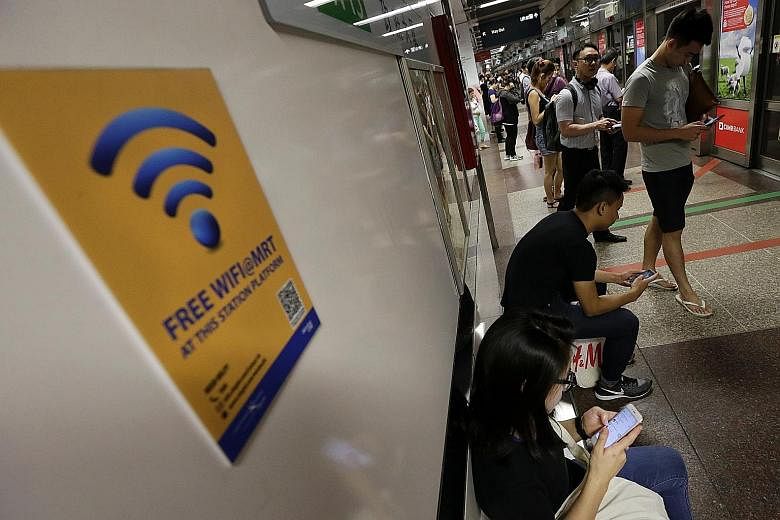Singapore leads the world in terms of the proportion of people using the services of a financial adviser, according to a new survey.
The findings indicate 61 per cent of respondents here consult human financial advisers - the highest for the countries covered in the Legg Mason Global Investment Survey.
The figure exceeds the Asia (excluding Japan) average of 56 per cent and easily beats the global average of 46 per cent.
The annual survey covered 15,300 respondents in 17 countries across the Asia-Pacific region, Latin America, the United States and Europe.
Of the total, 900 came from the US, 7,200 from Europe, 4,500 from Asia (including 900 from Singapore), 1,800 from Latin America and 900 from Australia.
OPENNESS TO ROBO-ADVISERS
The online survey, conducted in January and February, showed that the high level of engagement with human advisers here is complemented by a generally high level of openness to using robo-advisers.
Sixty per cent of Singapore respondents are "somewhat" or "very" comfortable receiving financial counsel from a robo-adviser - slightly above the global average of 57 per cent but below the Asia (ex-Japan) average of 66 per cent.
-
53%
Respondents who believe that robo-advisers can "completely" or "to some extent" replace financial advisers at their local bank, insurance company or broker.
-
79%
Respondents who would be "somewhat" or "very" comfortable buying $2,000 worth of investments online.
About 53 per cent believe that robo-advisers can "completely" or "to some extent" replace financial advisers at their local bank, insurance company or broker.
The top reasons cited? Robo-advice is not influenced by human emotions, people needing financial advice would be able to make decisions and check performances at any time of the day, and the charges would be lower.
Mr Ajay Dayal, investment director at Legg Mason Global Asset Management, said the survey results point towards Singaporeans considering a hybrid advice model, where technology and online resources could complement advice from professionals.
"Here in Singapore, the results showed a strong preference for a 'human-led and technology-supported' approach to most areas of financial planning and execution," he pointed out.
One exception was in the execution of trades in stocks and shares.
This is the only area where "technology-led and human-supported" services edged out "human-led and technology-supported" services at 31 per cent versus 30 per cent.
SINGAPOREANS COMFORTABLE WITH USING TECH FOR INVESTMENT
The survey showed that an overwhelming 96 per cent of respondents in Singapore were "somewhat" or "very" comfortable doing investment research online, while 88 per cent were "somewhat" or "very" comfortable seeking advice on investment.
However, the level of comfort expressed by Singapore respondents fell significantly when money was put on the table.
Even though 79 per cent indicated that they would be "somewhat" or "very" comfortable buying $2,000 worth of investments online, the figure fell to 57 per cent when the investment sum rose to $20,000.
The findings are a call to financial companies to enhance their digital offerings, said Mr Lennie Lim, managing director and regional head for Asia at Legg Mason Global Asset Management.
He noted: "Investors are increasingly turning to digital services to meet their investment needs, and financial service providers would do well to address this segment of users, while also paying attention to those users who value a personalised touch."
Last year, Legg Mason moved to complement its traditional investment services by acquiring Financial Guard, which delivers robo-advisory services.
SINGAPORE MOBILE USAGE AMONG WORLD'S HIGHEST
The Republic is well positioned for growth in the use of online financial services.
It ranks third globally in mobile Internet use, with 96 per cent gaining access to the Internet on the go via a smartphone or tablet. This figure is higher than the global average of 85 per cent and in line with the Asia (ex-Japan) average of 95 per cent.
However, as might be expected, mobile Internet use in Singapore differs markedly across generations, with the proportion of baby boomers using mobile Internet on the go lagging behind the proportion of millennials.
A significant proportion of respondents continue to access the Internet via their PCs.
In Singapore, 83 per cent of all respondents said that they go on the Internet every day using a PC, with the prevalence rate being relatively even across generations - 81 per cent of millennials and 82 per cent of baby boomers.
Mr Lim noted that such usage patterns have clear implications for financial service providers.
"They suggest that younger investors - those likely to be looking to buy a home or save for retirement - are the key target for application development," he said.
"PC-based services delivered via Web browsers, on the other hand, have to be developed and delivered in a manner that appeals to both millennials and baby boomers and that is accessible to them.
"Baby boomers are likely to be thinking more about retirement income planning than home purchases," he said.


